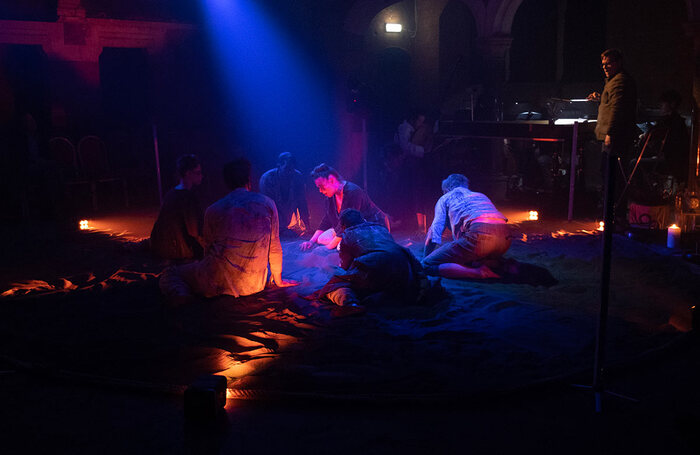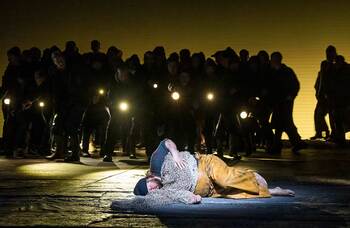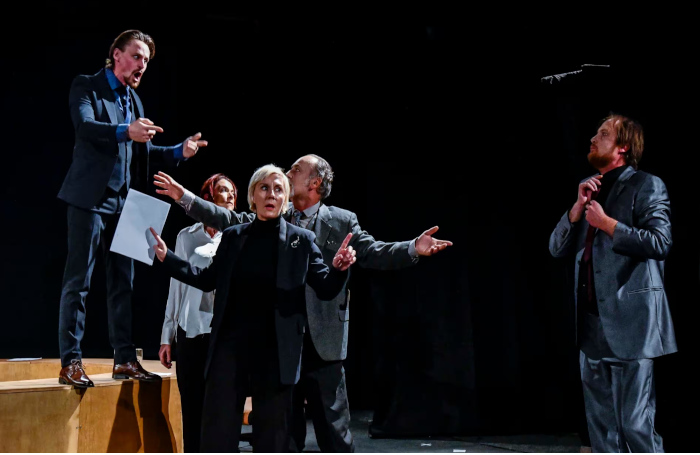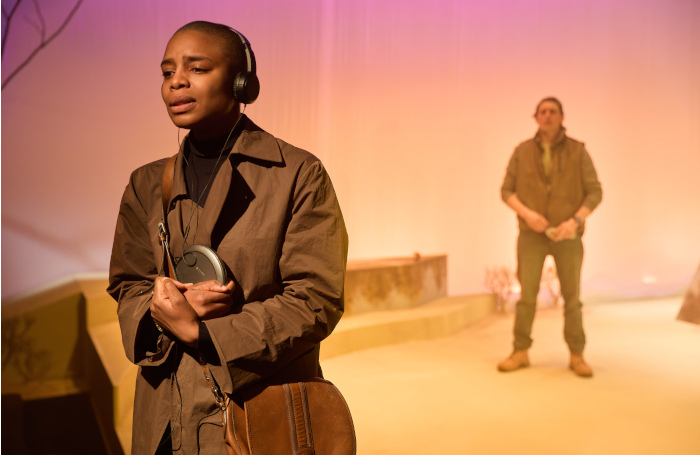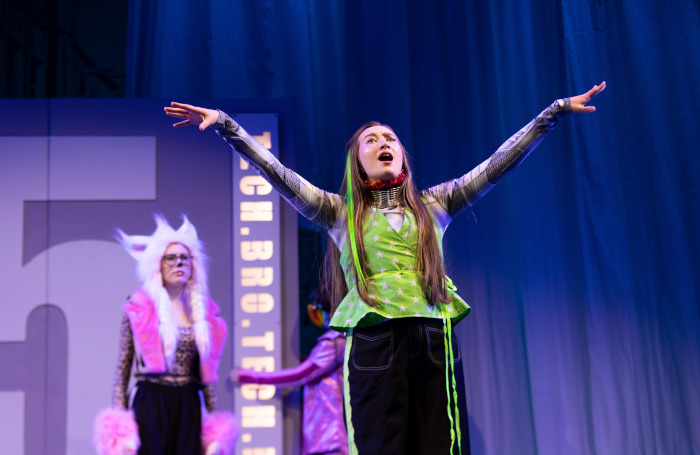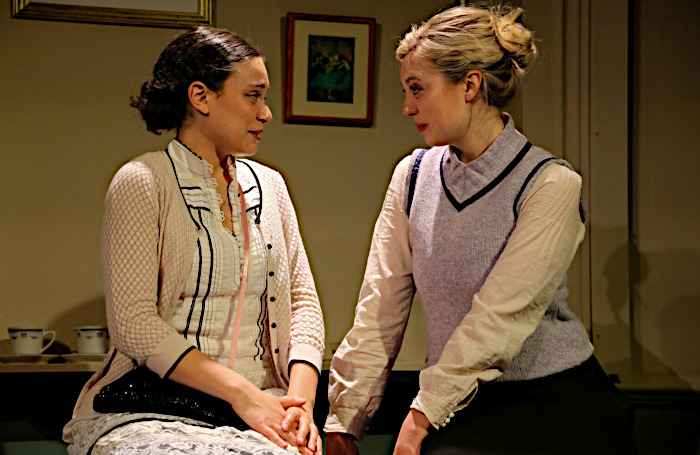Acis and Galatea review
The monster triumphs in La Nuova Musica’s dark staging of Handel’s operatic work
Even before a note sounded, it was obvious that La Nuova Musica’s version of Handel’s Acis and Galatea, directed by Andrew Staples, would be abandoning the countryside jollity central to most productions.
Handel’s "courtly entertainment" of 1718 tells the simple story of a nymph and a shepherd, and the jealous monster who destroys their happiness. Acis and Galatea has its origins in Greek myth and the pastorale tradition, but here it’s shifted to an end-times setting. The performers, dressed in shredded clothing and bandages, move across in a gloomy, incense-filled space at Stone Nest, a Victorian-era Presbyterian church turned arts space.
This dark mood is both persuasive and distracting, but outstanding performances tip the scales in favour of this production, which is part of the London Handel Festival.
In his director’s note for this production, Staples writes about the impermanence of joy: "Love, beauty and innocence are corrupted by lust, darkness and death." In our own era, this kind of framing resonates, and it’s true that in many Handel operas – such as Alcina, when the titular manipulative sorceress is destroyed – there’s an ambiguity to the eventual triumph of good over evil. Here, Acis’ spirit is transformed into fire, and the cycle begins anew.
This production opens with a bedraggled figure mournfully tending a fire, as deep rumbles and mumbled incantations reverberate from the sound system. The fire is dowsed in sand, which is then ritualistically spread across the floor by two dancers. These dancers (Sean Murray and Patricia Langa) are visual doubles of the vocal leads, Acis (Anthony Gregory) and Galatea (Madison Nonoa), and magnify their emotions.
It is not just the dancers who are in almost constant motion across the sandy floor, but all the performers, who at times are entangled in a kind of sculptural grappling. This restless motion is augmented by the regular use of coloured light sticks and blinding headlamps. The singers are, for the most part, able to balance these physical demands with the vocal demands of Handel’s appealing score. They are aided in this latter effort by the superb instrumentalists of La Nuova Musica, under the joyful command of musical director David Bates. Theorbo player Sergio Bucheli deserves plaudits for his sensitive accompaniment.
As Galatea, Nonoa is expressive and warm-toned. As her swain, Acis, Gregory is sincere and unswerving. There are fine moments too from David Webb as Coridon and James Way as Damon, the latter excelling in his warning to Acis: "Consider, fond shepherd." However, it is the distinctive bass of Will Thomas as the jealous Polyphemus, thundering and mighty in his rage at being denied the love of Galatea, that lingers in the mind as the music ends, the smoke clears and the sand is raked on the stage floor.
More Reviews
Recommended for you
More Reviews
Recommended for you
Most Read
Across The Stage this weekYour subscription helps ensure our journalism can continue
Invest in The Stage today with a subscription starting at just £7.99
